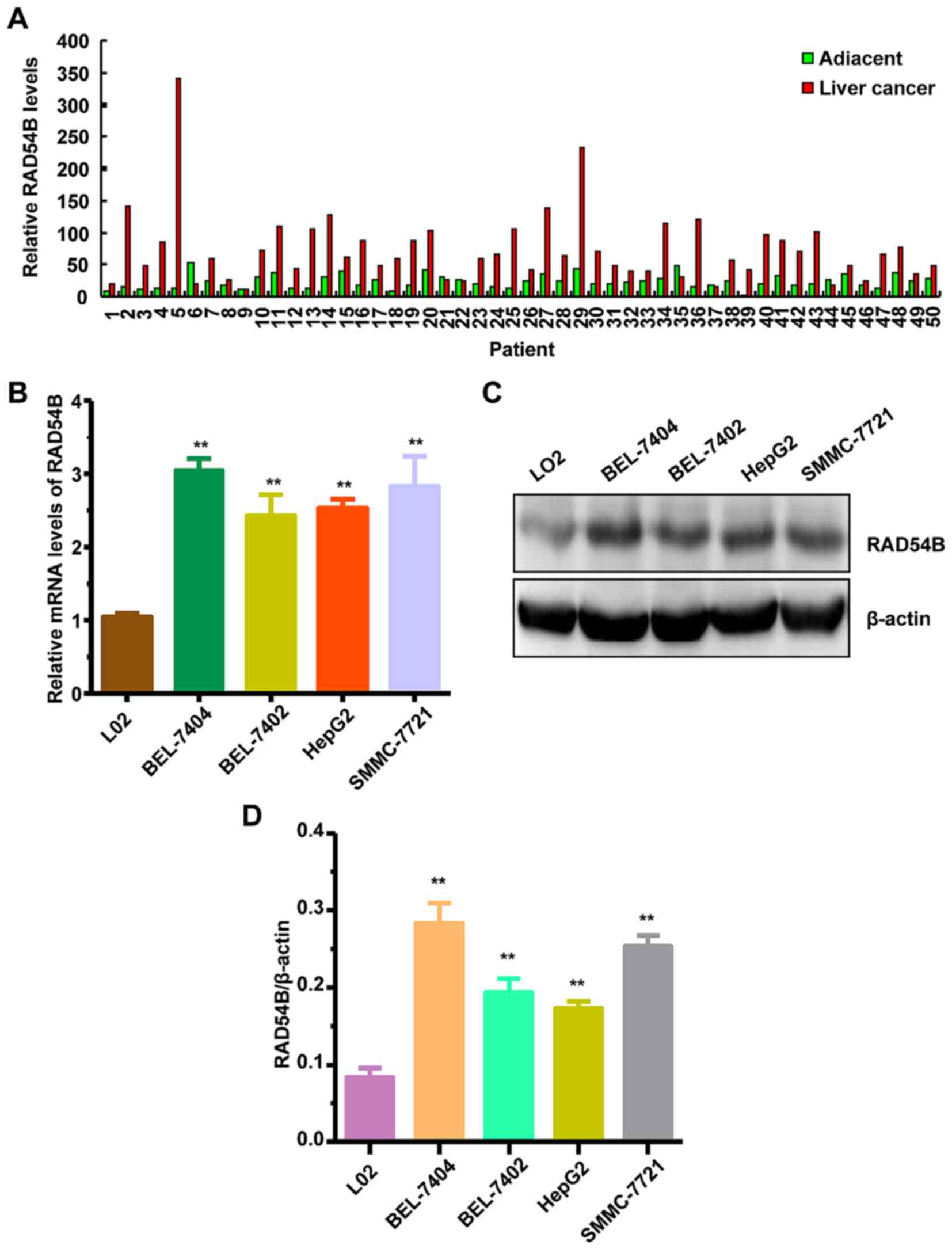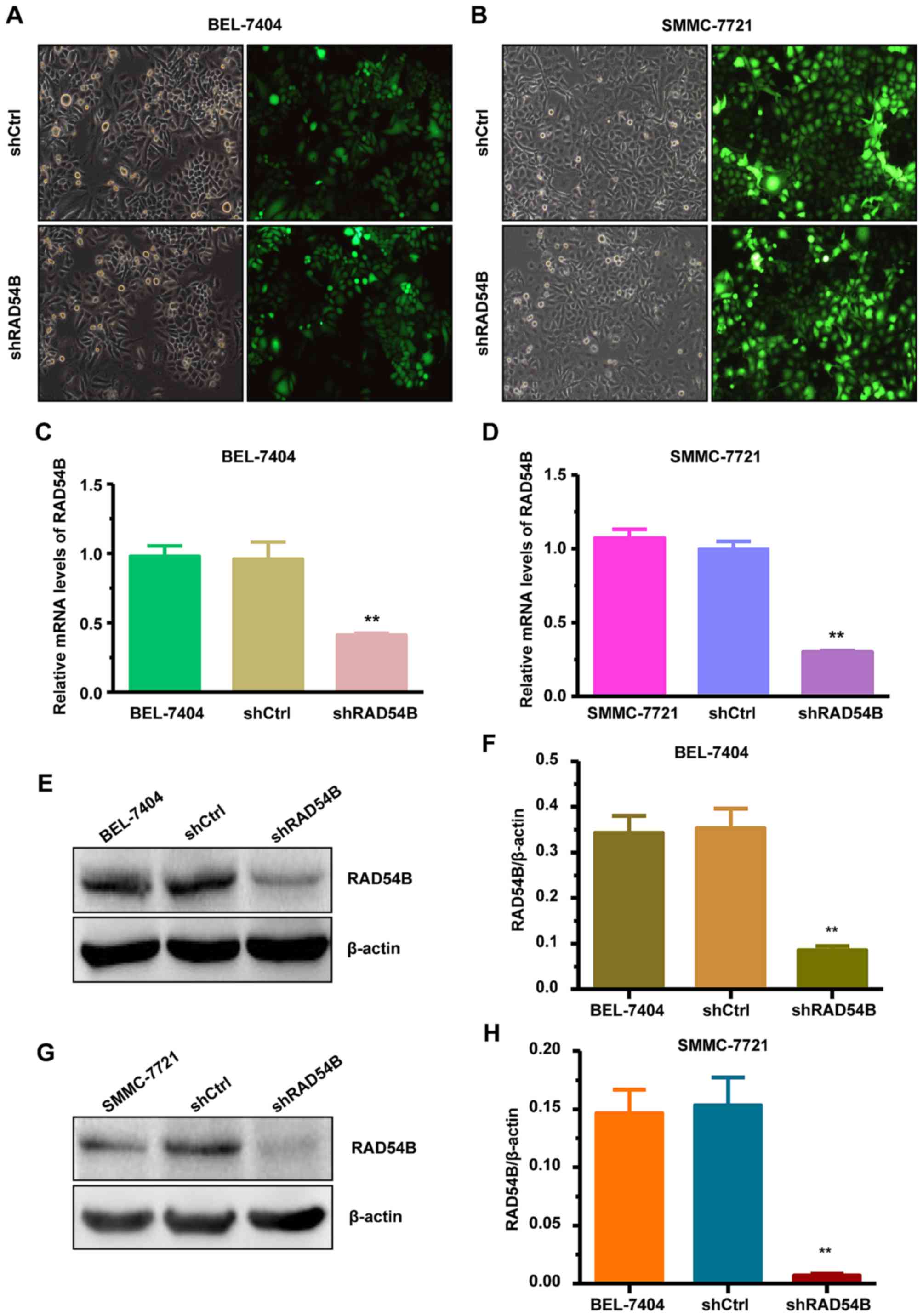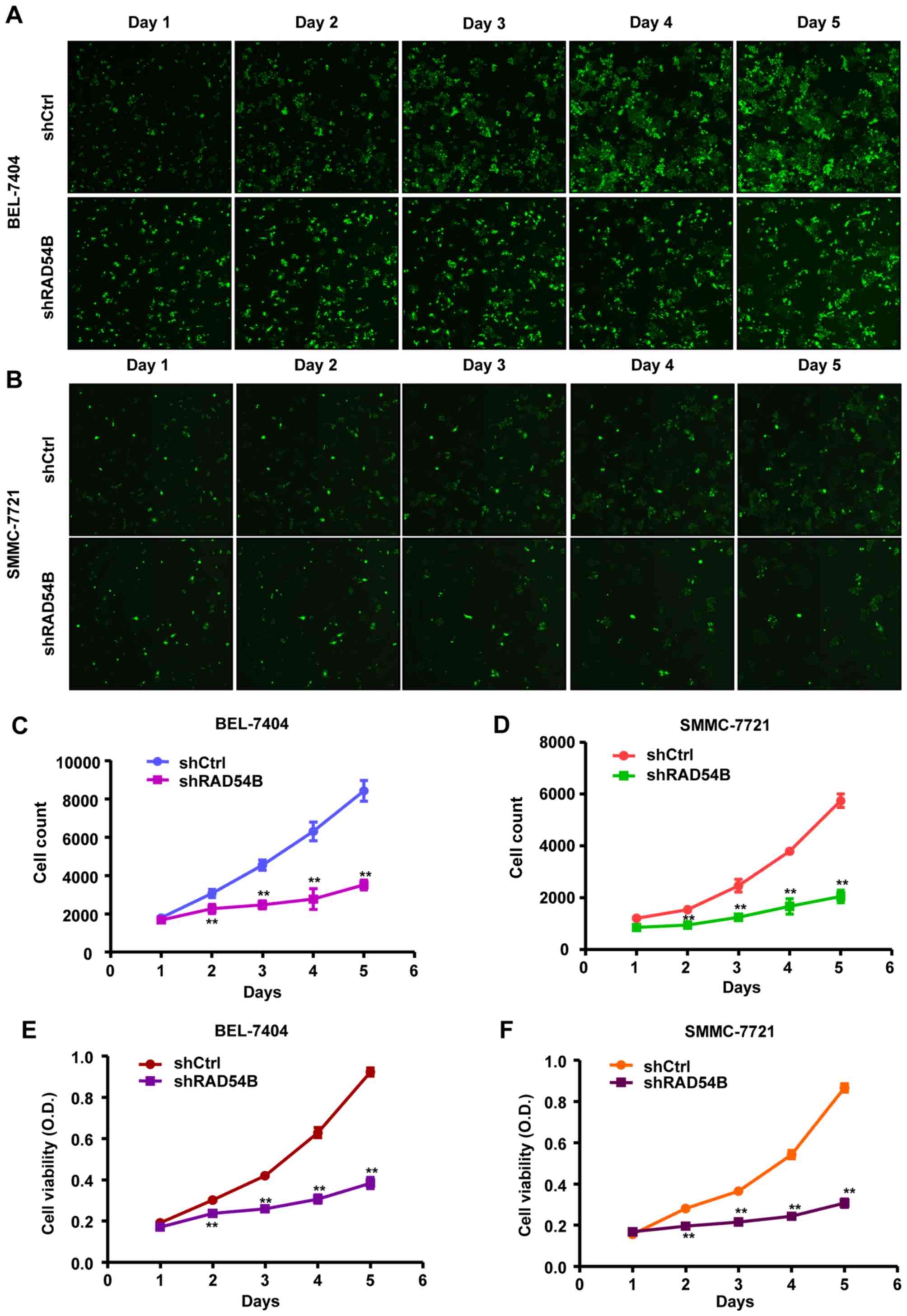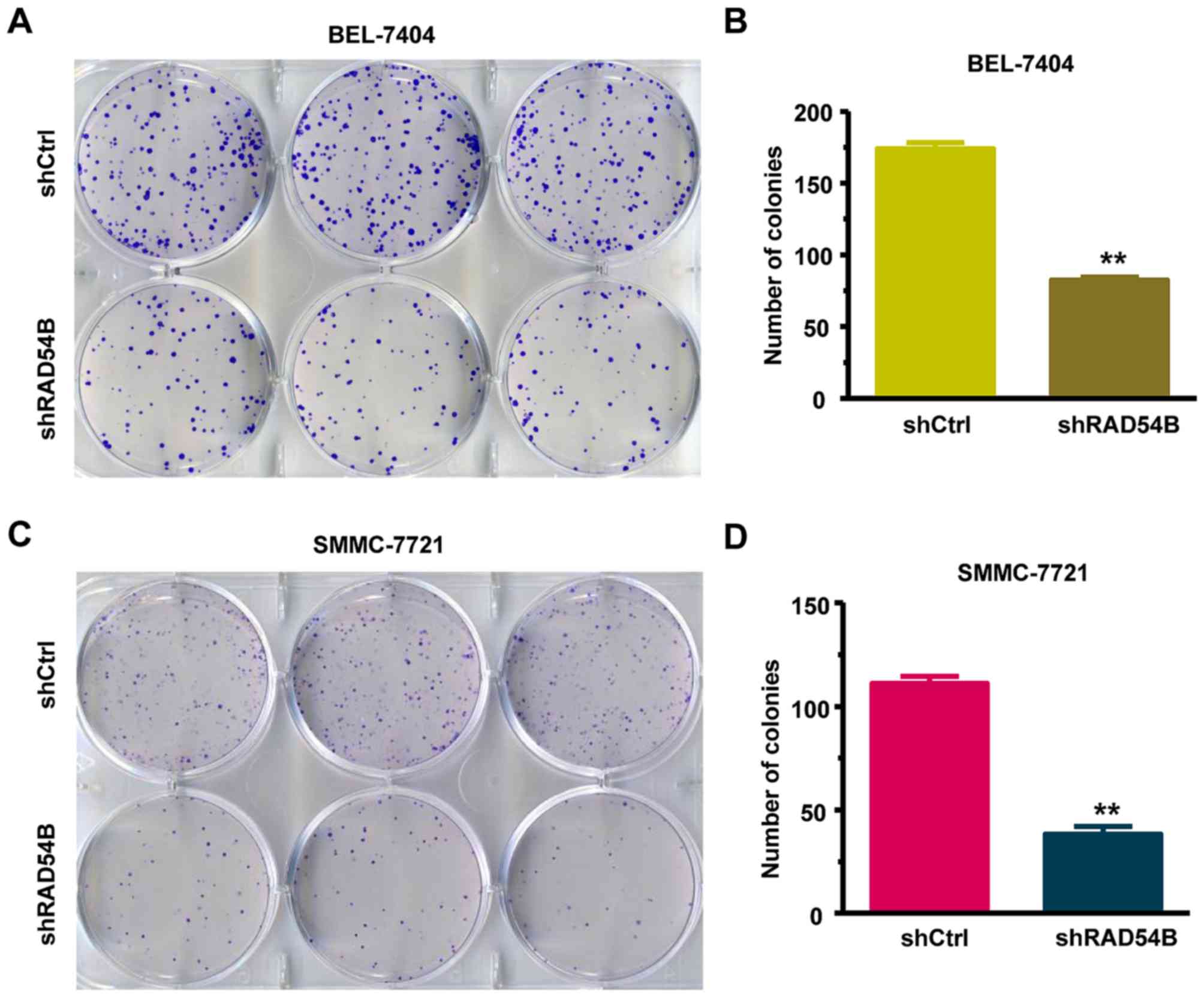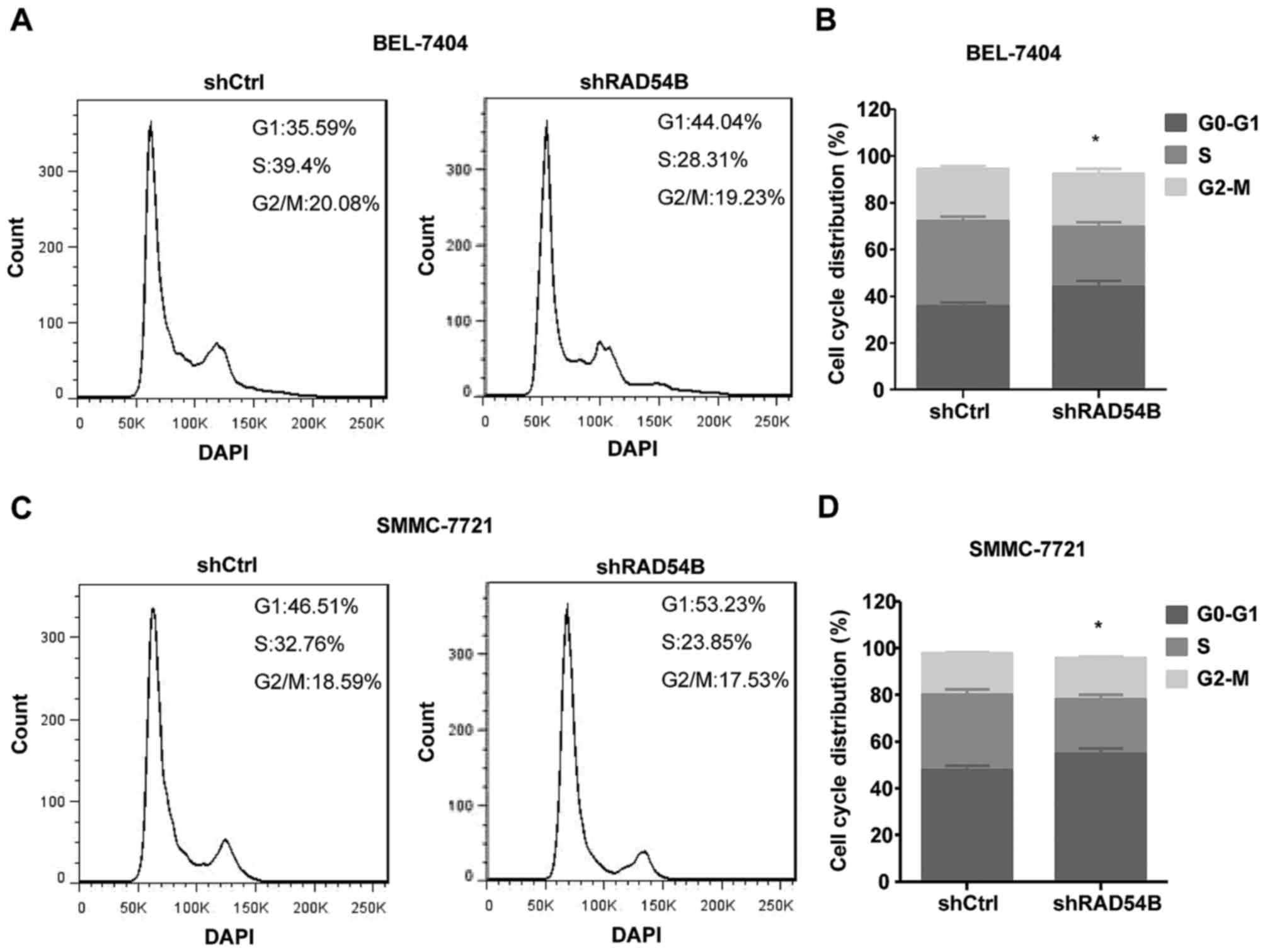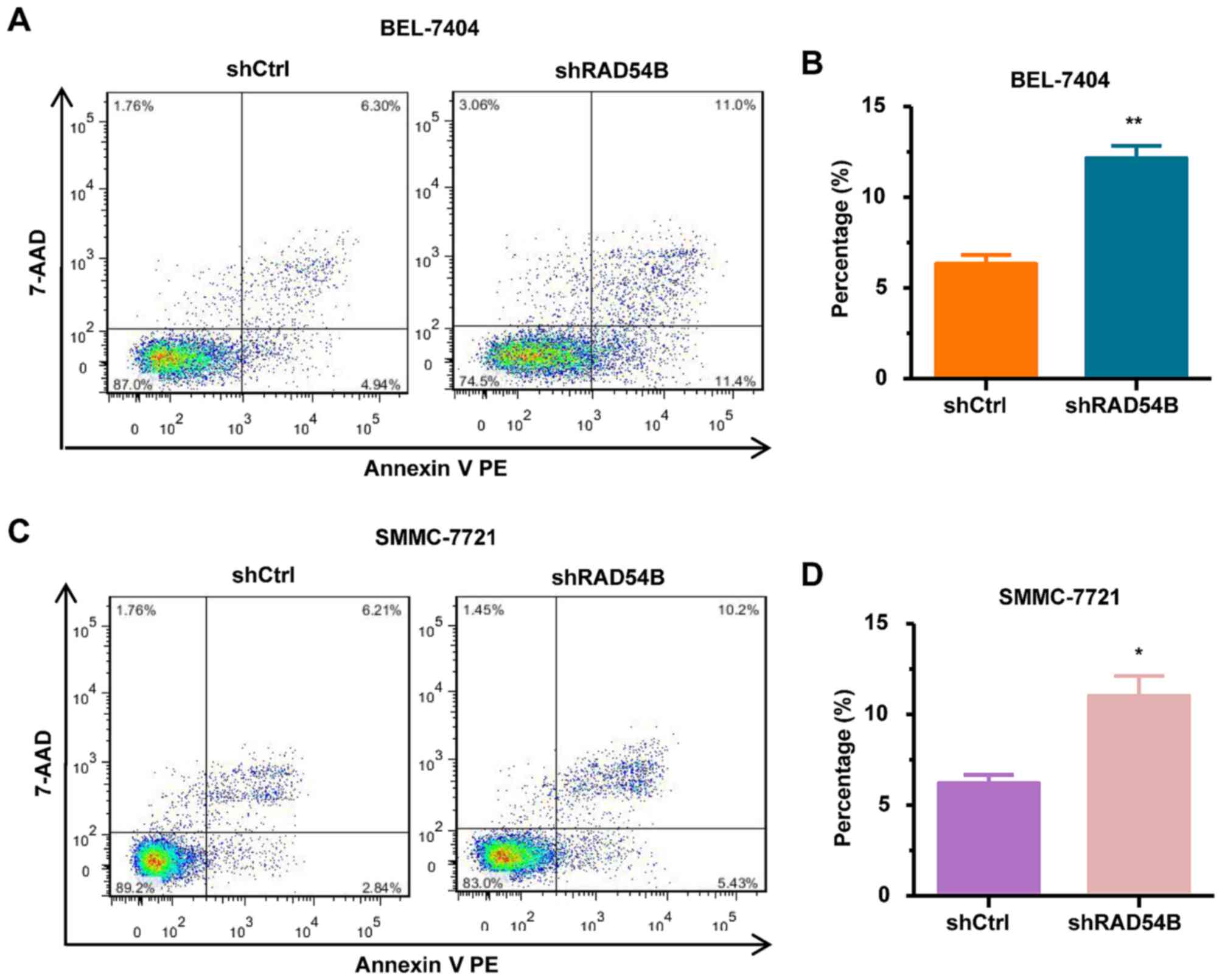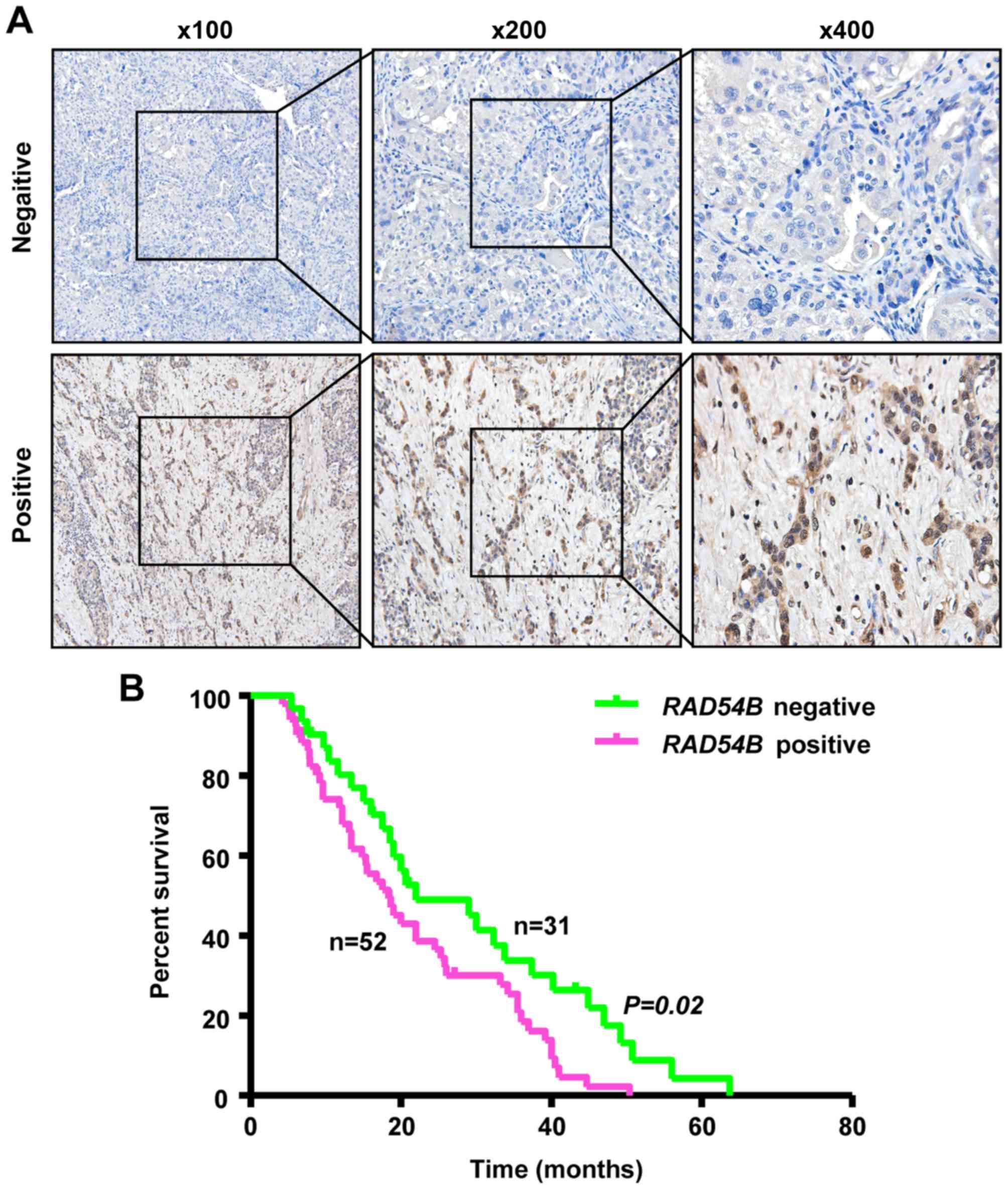|
1
|
Siegel RL, Miller KD and Jemal A: Cancer
Statistics, 2017. CA Cancer J Clin. 67:7–30. 2017. View Article : Google Scholar : PubMed/NCBI
|
|
2
|
Zuo TT, Zheng RS, Zhang SW, Zeng HM and
Chen WQ: Incidence and mortality of liver cancer in China in 2011.
Chin J Cancer. 34:508–513. 2015. View Article : Google Scholar : PubMed/NCBI
|
|
3
|
Trovato FM, Tognarelli JM, Crossey MM,
Catalano D, Taylor-Robinson SD and Trovato GM: Challenges of liver
cancer: Future emerging tools in imaging and urinary biomarkers.
World J Hepatol. 7:2664–2675. 2015. View Article : Google Scholar : PubMed/NCBI
|
|
4
|
O'Kane GM, Connor AA and Gallinger S:
Characterization, detection, and treatment approaches for
homologous recombination deficiency in cancer. Trends Mol Med.
23:1121–1137. 2017. View Article : Google Scholar : PubMed/NCBI
|
|
5
|
Talens F, Jalving M, Gietema JA and Van
Vugt MA: Therapeutic targeting and patient selection for cancers
with homologous recombination defects. Expert Opin Drug Discov.
12:565–581. 2017. View Article : Google Scholar : PubMed/NCBI
|
|
6
|
Kolinjivadi AM, Sannino V, de Antoni A,
Técher H, Baldi G and Costanzo V: Moonlighting at replication forks
- a new life for homologous recombination proteins BRCA1, BRCA2 and
RAD51. FEBS Lett. 591:1083–1100. 2017. View Article : Google Scholar : PubMed/NCBI
|
|
7
|
Klein HL: The consequences of Rad51
overexpression for normal and tumor cells. DNA Repair (Amst).
7:686–693. 2008. View Article : Google Scholar : PubMed/NCBI
|
|
8
|
Tennstedt P, Fresow R, Simon R, Marx A,
Terracciano L, Petersen C, Sauter G, Dikomey E and Borgmann K:
RAD51 overexpression is a negative prognostic marker for colorectal
adenocarcinoma. Int J Cancer. 132:2118–2126. 2013. View Article : Google Scholar : PubMed/NCBI
|
|
9
|
Song H, Xia SL, Liao C, Li YL, Wang YF, Li
TP and Zhao MJ: Genes encoding Pir51, Beclin 1, RbAp48 and aldolase
b are up or down-regulated in human primary hepatocellular
carcinoma. World J Gastroenterol. 10:509–513. 2004. View Article : Google Scholar : PubMed/NCBI
|
|
10
|
Obama K, Satoh S, Hamamoto R, Sakai Y,
Nakamura Y and Furukawa Y: Enhanced expression of RAD51 associating
protein-1 is involved in the growth of intrahepatic
cholangiocarcinoma cells. Clin Cancer Res. 14:1333–1339. 2008.
View Article : Google Scholar : PubMed/NCBI
|
|
11
|
Chandramouly G, McDevitt S, Sullivan K,
Kent T, Luz A, Glickman JF, Andrake M, Skorski T and Pomerantz RT:
Small-molecule disruption of RAD52 rings as a mechanism for
precision medicine in BRCA-deficient cancers. Chem Biol.
22:1491–1504. 2015. View Article : Google Scholar : PubMed/NCBI
|
|
12
|
Huang F, Goyal N, Sullivan K, Hanamshet K,
Patel M, Mazina OM, Wang CX, An WF, Spoonamore J, Metkar S, et al:
Targeting BRCA1- and BRCA2-deficient cells with RAD52 small
molecule inhibitors. Nucleic Acids Res. 44:4189–4199. 2016.
View Article : Google Scholar : PubMed/NCBI
|
|
13
|
Cramer-Morales K, Nieborowska-Skorska M,
Scheibner K, Padget M, Irvine DA, Sliwinski T, Haas K, Lee J, Geng
H, Roy D, et al: Personalized synthetic lethality induced by
targeting RAD52 in leukemias identified by gene mutation and
expression profile. Blood. 122:1293–1304. 2013. View Article : Google Scholar : PubMed/NCBI
|
|
14
|
Wang Y, Gudikote J, Giri U, Yan J, Deng W,
Ye R, Jiang W, Li N, Hobbs BP, Wang J, et al: RAD50 expression is
associated with poor clinical outcomes after radiotherapy for
resected non-small cell lung cancer. Clin Cancer Res. 24:341–350.
2018. View Article : Google Scholar : PubMed/NCBI
|
|
15
|
Nagai Y, Yamamoto Y, Yasuhara T, Hata K,
Nishikawa T, Tanaka T, Tanaka J, Kiyomatsu T, Kawai K, Nozawa H, et
al: High RAD54B expression: An independent predictor of
postoperative distant recurrence in colorectal cancer patients.
Oncotarget. 6:21064–21073. 2015. View Article : Google Scholar : PubMed/NCBI
|
|
16
|
Hwang JC, Sung WW, Tu HP, Hsieh KC, Yeh
CM, Chen CJ, Tai HC, Hsu CT, Shieh GS, Chang JG, et al: The
overexpression of FEN1 and RAD54B may act as independent prognostic
factors of lung adenocarcinoma. PLoS One. 10:e01394352015.
View Article : Google Scholar : PubMed/NCBI
|
|
17
|
Livak KJ and Schmittgen TD: Analysis of
relative gene expression data using real-time quantitative PCR and
the 2(-Delta Delta C(T)) Method. Methods. 25:402–408. 2001.
View Article : Google Scholar : PubMed/NCBI
|
|
18
|
Smith CL and Peterson CL: A conserved
Swi2/Snf2 ATPase motif couples ATP hydrolysis to chromatin
remodeling. Mol Cell Biol. 25:5880–5892. 2005. View Article : Google Scholar : PubMed/NCBI
|
|
19
|
Miyagawa K, Tsuruga T, Kinomura A, Usui K,
Katsura M, Tashiro S, Mishima H and Tanaka K: A role for RAD54B in
homologous recombination in human cells. EMBO J. 21:175–180. 2002.
View Article : Google Scholar : PubMed/NCBI
|
|
20
|
Sarai N, Kagawa W, Fujikawa N, Saito K,
Hikiba J, Tanaka K, Miyagawa K, Kurumizaka H and Yokoyama S:
Biochemical analysis of the N-terminal domain of human RAD54B.
Nucleic Acids Res. 36:5441–5450. 2008. View Article : Google Scholar : PubMed/NCBI
|
|
21
|
Bass AJ, Thorsson V, Shmulevich I,
Reynolds SM, Miller M, Bernard B, Hinoue T, Laird PW, Curtis C,
Shen H, et al: Cancer Genome Atlas Research Network: Comprehensive
molecular characterization of gastric adenocarcinoma. Nature.
513:202–209. 2014. View Article : Google Scholar : PubMed/NCBI
|
|
22
|
Ciriello G, Gatza ML, Beck AH, Wilkerson
MD, Rhie SK, Pastore A, Zhang H, McLellan M, Yau C, Kandoth C, et
al: TCGA Research Network: Comprehensive molecular portraits of
invasive lobular breast cancer. Cell. 163:506–519. 2015. View Article : Google Scholar : PubMed/NCBI
|
|
23
|
Imielinski M, Berger AH, Hammerman PS,
Hernandez B, Pugh TJ, Hodis E, Cho J, Suh J, Capelletti M,
Sivachenko A, et al: Mapping the hallmarks of lung adenocarcinoma
with massively parallel sequencing. Cell. 150:1107–1120. 2012.
View Article : Google Scholar : PubMed/NCBI
|
|
24
|
Hodis E, Watson IR, Kryukov GV, Arold ST,
Imielinski M, Theurillat JP, Nickerson E, Auclair D, Li L, Place C,
et al: A landscape of driver mutations in melanoma. Cell.
150:251–263. 2012. View Article : Google Scholar : PubMed/NCBI
|
|
25
|
Dulak AM, Stojanov P, Peng S, Lawrence MS,
Fox C, Stewart C, Bandla S, Imamura Y, Schumacher SE, Shefler E, et
al: Exome and whole-genome sequencing of esophageal adenocarcinoma
identifies recurrent driver events and mutational complexity. Nat
Genet. 45:478–486. 2013. View
Article : Google Scholar : PubMed/NCBI
|
|
26
|
Hiramoto T, Nakanishi T, Sumiyoshi T,
Fukuda T, Matsuura S, Tauchi H, Komatsu K, Shibasaki Y, Inui H,
Watatani M, et al: Mutations of a novel human RAD54 homologue,
RAD54B, in primary cancer. Oncogene. 18:3422–3426. 1999. View Article : Google Scholar : PubMed/NCBI
|
|
27
|
Shao J, Xu Z, Peng X, Chen M, Zhu Y, Xu L,
Zhu H, Yang B, Luo P and He Q: Gefitinib synergizes with irinotecan
to suppress hepatocellular carcinoma via antagonizing
Rad51-mediated DNA-repair. PLoS One. 11:e01469682016. View Article : Google Scholar : PubMed/NCBI
|
|
28
|
Li Z, Guo Y, Zhou L, Ge Y, Wei L, Li L,
Zhou C, Wei J, Yuan Q, Li J, et al: Association of a functional
RAD52 genetic variant locating in a miRNA binding site with risk of
HBV-related hepatocellular carcinoma. Mol Carcinog. 54:853–858.
2015. View
Article : Google Scholar : PubMed/NCBI
|















